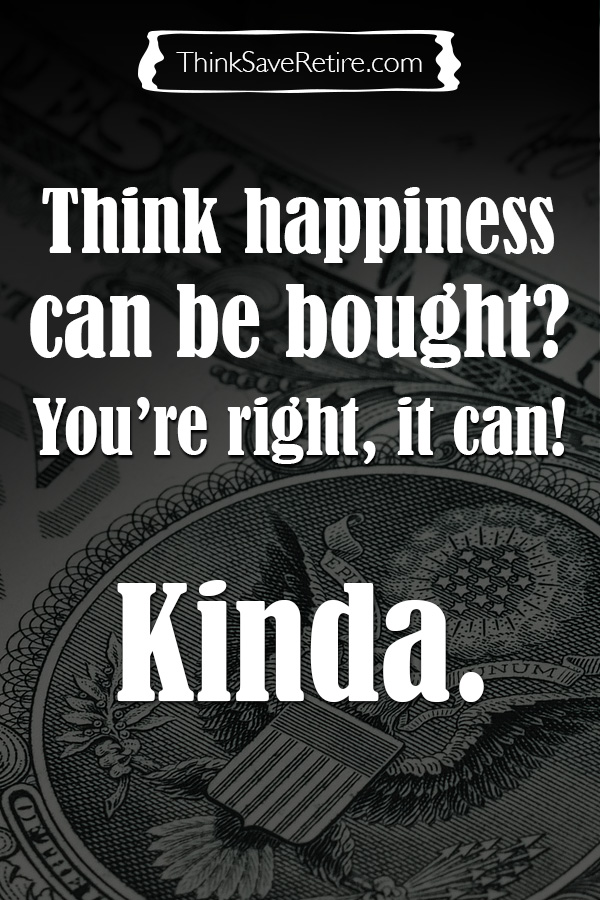Turns out we can buy happiness, but not in the way you think

Many of us in the personal finance community have written about the fallacy of buying happiness, arguing that it simply cannot be done. While true in many ways, one remarkable study finds that happiness can be bought with money, so long as we're not spending that money on ourselves.

The study is three years old but provides interesting insight into five key principles that actually generate happiness.
Published by Forbes, a dude named Michael Horton ran a clever study that involved giving a person money and asking them to spend it on themselves. Then, each person was given more money, but this time, they had to give that money away instead of spending it on themselves.
Which task made these people happier?
Demonstrably, giving money away made people far happier and more socially connected to people around them. Conversations were started. Surely, a sense of accomplishment was felt by the giver. Knowing that you brought a smile to someone else's face is a powerful emotion, more powerful than bringing a smile to one's own face.
Horton divides the source of happiness up into five distinct areas:
- Buy Experiences
- Make it a Treat
- Buy Time
- Pay now, consume later (delayed gratification)
- Invest in others
Without a shadow of a doubt, experiences provide me with more happiness than buying stuff. That helicopter ride I took over the island of Kauai, HI on our honeymoon is an experience that I will never forget. It sure beats the hell out of buying all those miniature model motorcycles that I thought were super cool several years ago.
The less we do more pleasurable things, the more special they become. Dessert feels like a treat to me because I don't have it at the conclusion of every meal. If I did, it would become "the routine", nothing special about it...just something that I expect to happen. That's not happiness.
Time is a critical element of our happiness, and it becomes more and more important the closer we get to calling it quits from work. I want time - time to pursue my hobbies, time to just sit and think, time to enjoy nature. Time is a finite resource, and the better we manage that resource, the happier we tend to be.
I back into spots more often than not. I like the ability to just pull straight out and be on my way when it's time to go again. Delayed gratification is something that I've always naturally done. I guess that's why my wife and I have lived so frugally over the past several years to retire early.
And it's true, I get far more happiness out of life when doing something nice for someone else. I will always remember that time I got a job for someone who was looking for work...far more vividly than any of the jobs that I accepted.
Is this truly the recipe for happiness? Actually, it's pretty darn close to what I would consider that recipe to include. It's true, human beings do tend to feel more enjoyment when we do nice things for other people, probably because it makes two people happy instead of just ourselves.
And when it comes to being happy, the more the merrier, right?
Investing in others is a remarkable way to increase our own happiness. So is spending money on experiences rather than on things.
It's question time: What are some things that you do for others that bring you happiness?